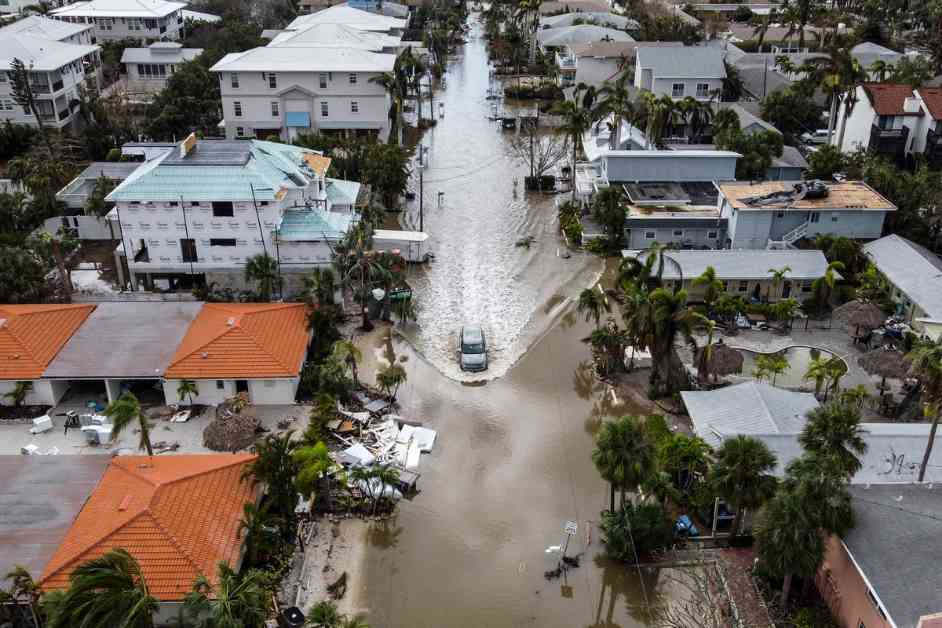Hurricane Milton, a record-breaking storm, wreaked havoc in Florida, causing historic rainfall, tornado outbreaks, and wild wind acceleration. Despite initial fears of a direct hit on Tampa, the storm made landfall in Sarasota County, sparing the city from the worst-case scenario. However, the storm still left a trail of destruction in its path.
Climate change likely played a role in the storm’s intensity, with unusually warm waters in the Gulf of Mexico fueling its rapid intensification into a Category 5 cyclone before weakening to a Category 3. Governor Ron DeSantis acknowledged the storm’s significance but expressed relief that it was not as catastrophic as feared.
The storm brought unprecedented rainfall along the coast, with areas like Tampa and St. Petersburg experiencing record-breaking precipitation. Tampa International Airport recorded over 11 inches of rain, while St. Petersburg saw nearly 19 inches, setting a monthly record. The heavy rains, combined with storm surge, led to widespread flooding across the state.
In addition to the rainfall, Hurricane Milton also spawned numerous tornadoes across Florida, with reports of 45 individual tornadoes and 19 confirmed touchdowns. The tornado outbreaks triggered over 100 tornado warnings in a single day, setting a record for the state. Scientists are still investigating the reasons behind the high number of twisters generated by the storm.
The storm’s rapid intensification and unprecedented strength were attributed to record-breaking water temperatures in the Gulf, which were significantly influenced by climate change. As hurricanes continue to grow stronger and intensify faster due to global warming, the likelihood of more powerful storms like Milton in the future increases.
While the links between tornadoes and climate change are less clear, studies suggest that their frequency may not have increased significantly, but their geographic patterns may be shifting over time. Research consortiums specializing in climate change and extreme weather events are expected to release analyses on Milton’s ties to global warming in the coming days.
Overall, Hurricane Milton serves as a stark reminder of the growing impact of climate change on extreme weather events. As storms become more intense and wetter due to rising temperatures, communities must be prepared for the increasing risks posed by future hurricanes. The record-breaking nature of Milton highlights the urgent need for climate action to mitigate the impact of such disasters in the future.




